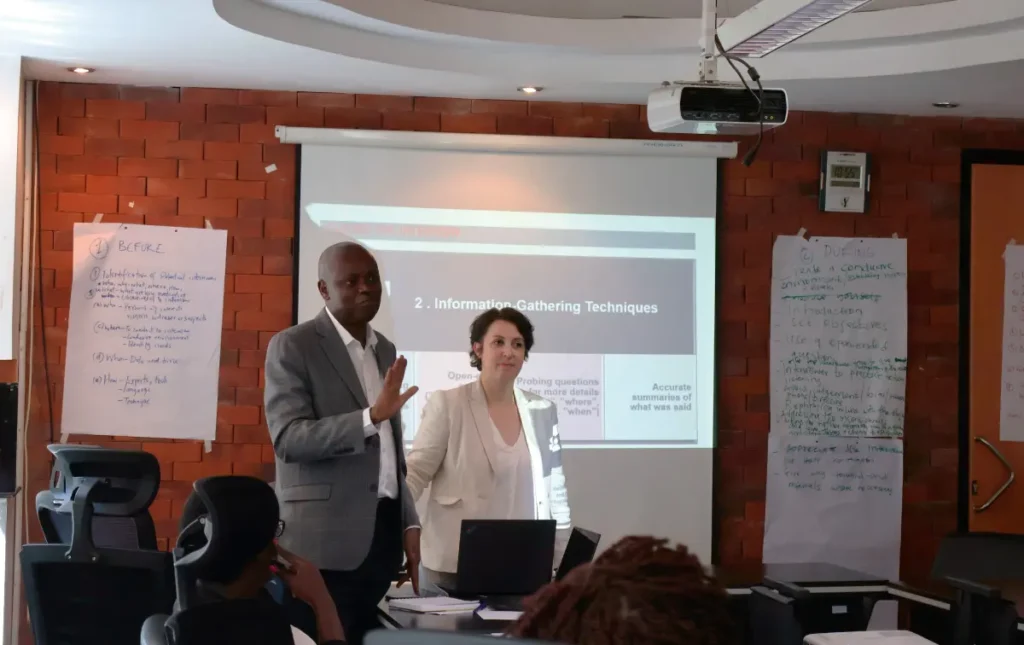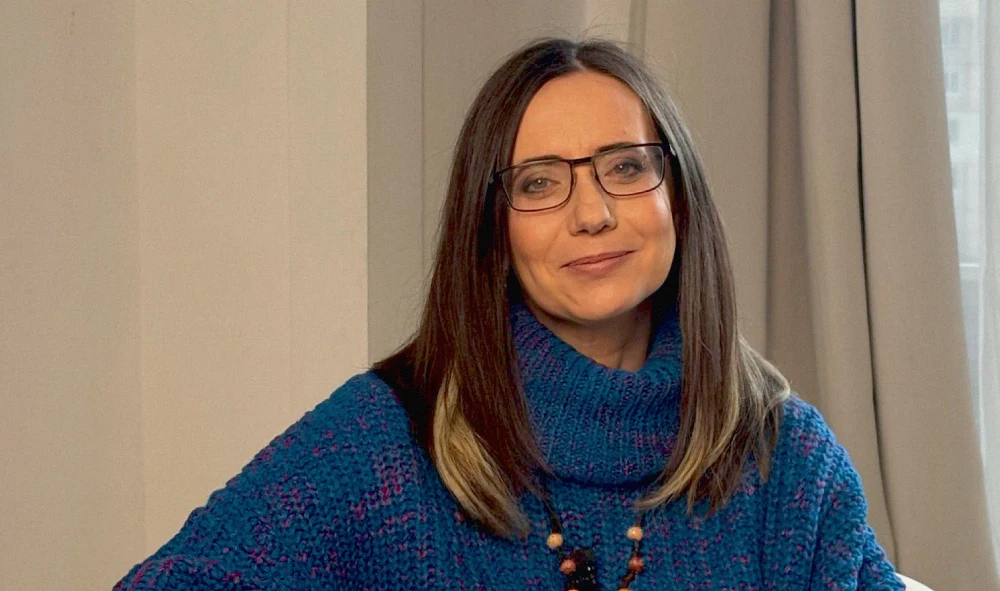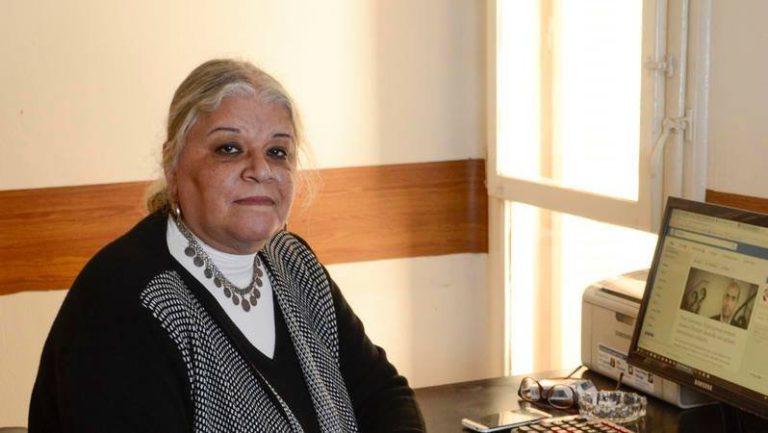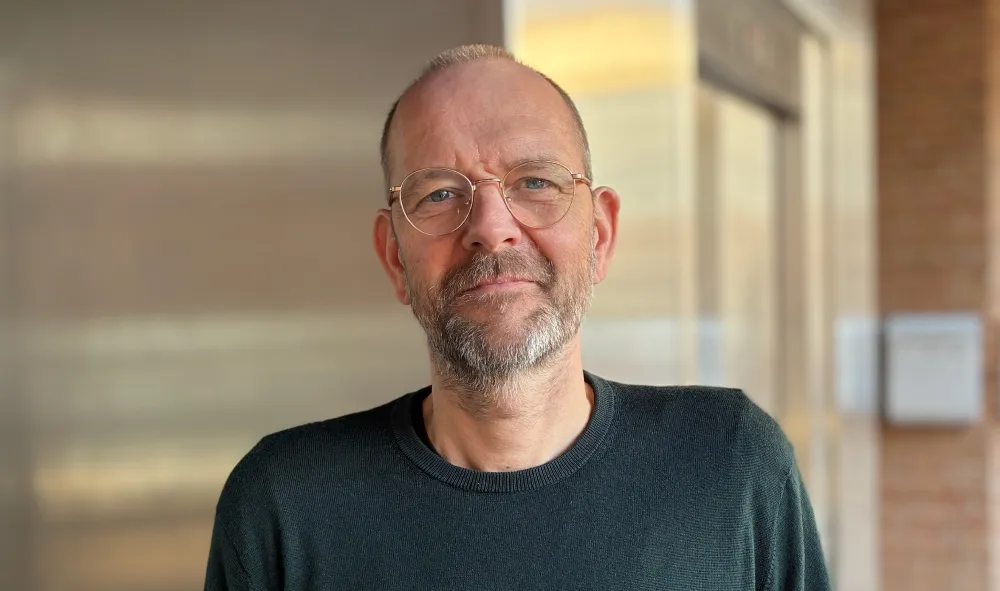In Kenya, there is a growing demand for a criminal justice system grounded in accountability, transparency, and public trust. This call for reform comes not only from civil society but also from within the police service. At the centre of this shift is a crucial question: How can police investigations be both effective and in accordance with human rights principles?
In response, DIGNITY and our Kenyan partner MIDRIFT will be training police officers in investigative interviewing — a method that is based on stimulating communication and building trust to gather reliable and accurate information.
We spoke with lead trainer Kalia Kambanella – who is a Senior Legal Advisor and one of DIGNITY’s experts on investigative interviewing – about why this approach matters and how it can support meaningful police reform in Kenya.
Kalia Kambanella, why is DIGNITY involved in police training in Kenya?
»DIGNITY’s involvement builds on long-term collaboration with our partner MIDRIFT in Nakuru in Kenya, which has worked closely with the police on community-led violence prevention and leadership. Through these engagements, a key question arose: how can the police deliver better on their mandate of solving crime and respecting human rights? A need was identified for improving the interview techniques in investigations. MIDRIFT reached out to DIGNITY, knowing our work on the Mendez Principles, to help strengthen policing in Kenya with a focus on human rights and public trust.«
What exactly are the Mendez Principles?
»The Mendez Principles are international guidelines for ethical and effective police interviews that respect human rights. Developed by experts from law, psychology, policing, and civil society, they promote moving away from coercion toward trust-based, dialogue-driven interviews. Backed by research, these principles show that respecting interviewees’ rights leads to more reliable information and better policing.«
How do the Mendez principles differ from more traditional methods?
»In many countries, police have used intimidation and manipulation to get confessions, but research shows these methods often lead to false confessions. The Mendez Principles offer a different approach—viewing interviews as professional interactions to be based on science, law and ethics by respecting human rights and the interviewee, building trust and stimulating communication.«
What specific needs in Kenya does this training address?
»The training meets a clear need from police investigators who want to replace outdated, harmful practices with more effective and trusted methods. In Kenya, there’s growing recognition that public confidence can’t rely on fear or coercion. Police are seeking skills to help them operationalize human rights, and the Mendez Principles provide a clear, research-backed framework for ethical, effective interviewing.«
How does this align with the broader context in Kenya?
»Kenya stands at a crossroads, with rising demands for transparent and accountable justice. Police have faced criticism for misconduct, but a growing reform movement—inside and outside the force—is pushing for change. Many officers seek guidance on new, better practices, making this initiative well-timed to support that momentum.«
Who is taking part in the training?
»The training is a “train-the-trainer” workshop with experienced investigators from Kenya’s Directorate of Criminal Investigations, as well as other professionals engaging on policing such as the Independent Policing Oversight Authority, the Kenya National Commission on Human Rights, and civil society groups like MIDRIFT.
They all share a commitment to improving justice, combining practical interview experience with legal and human rights expertise. The workshop is interactive, using group discussions, role-plays, and case studies from Kenyan courts. One case study involves a confession rejected by a Kenyan Court due to intimidation, showing how coercion harms justice. Applying the Mendez Principles helps participants envision and apply a more professional and effective approach. The training was co-developed with MIDRIFT to fit Kenyan realities, using local laws and relevant case studies. This ensures it’s a practical tool Kenyan professionals can adapt to improve their justice system.«
What’s the long-term vision for implementing investigative interviewing in Kenya?
»After the workshop, participants will help develop and deliver a training module introducing the Mendez Principles to police investigators. The goal is for investigative interviewing to become embedded in police culture and training—starting with the academy and extending into everyday practice. If successful, Kenya could become a model for investigative interviewing in the region contributing to a justice system built not on fear and coercion, but on respect, effectiveness, and public trust.«





